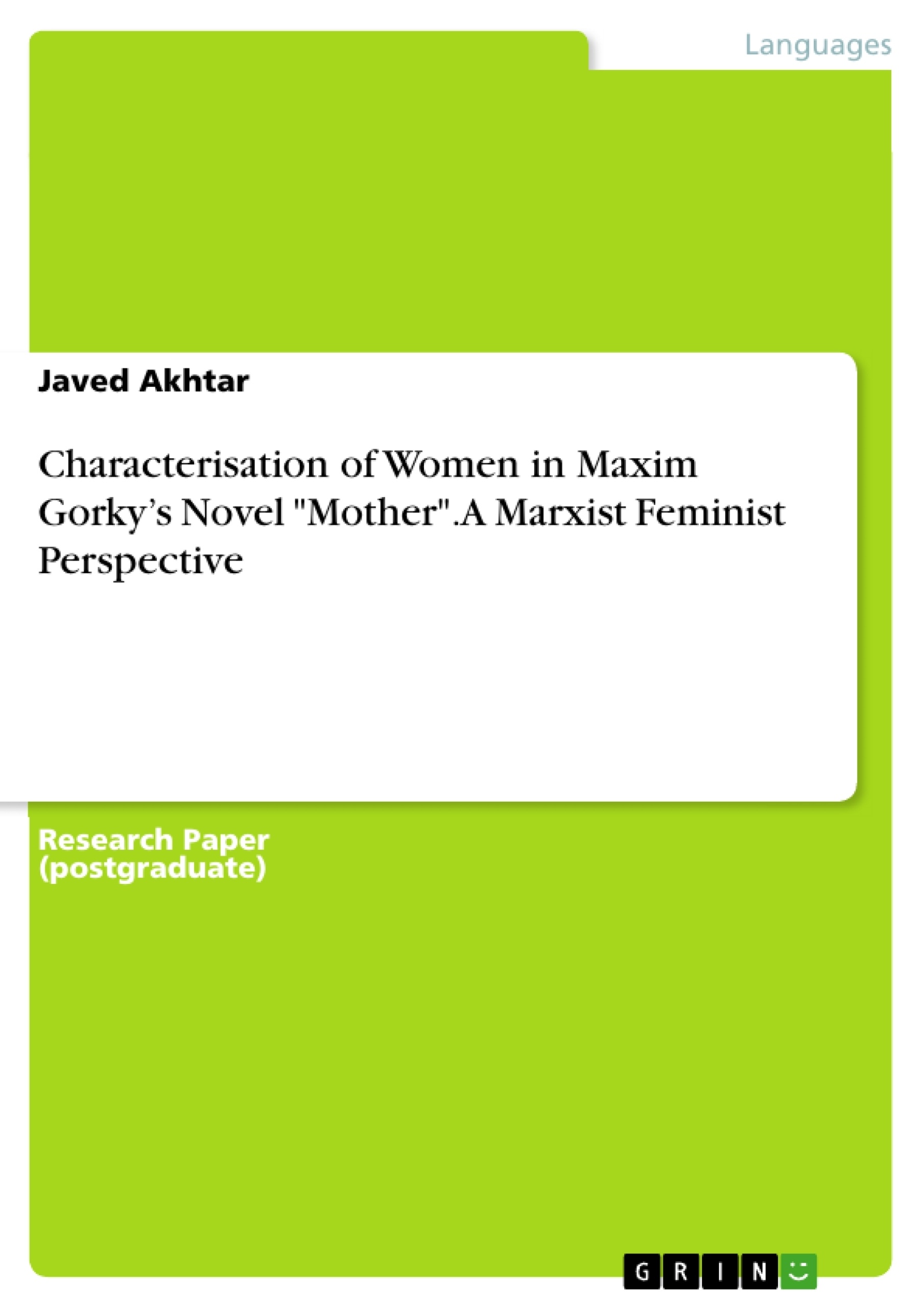Maxim Gorky is one of the great portraitists of typification of women in Russian as well as in world literature. He presents a panoramic gallery of female characters such as Nilovna, Sophia, Natasha, Sasha and Ludmilla in his debate-raging novel “Mother”. These female personages belong to the various social classes of the Russian social formation but they possess universality in their personalities whom we have often met every day and everywhere in our daily life.
Gorky endows them with class-consciousness, which enables them to involve in the revolutionary proletariat movement, considering Socialism the only way of woman’s emancipation and enfranchisement as well as class-liberation. This paper tends to focus on the re-evaluation and investigation into Maxim Gorky's realistic depiction of these women to delineate their revolutionary roles in the structure of his novel as well as in the Russian Communist politics and social formation form a Marxist Feminist perspective in a new and innovative way.
How these female figures are developed from their bourgeois and petty-bourgeois class-milieu to the level of radical Marxist activists and militants. How they liberate themselves from their cowed, wretched and oppressed living conditions into which they have been subjugated, tortured and beaten by men.
Table of Contents
- Abstract
- Introduction
- Literature Review
Objectives and Key Themes
This paper re-evaluates Maxim Gorky's portrayal of women in his novel "Mother" from a Marxist-Feminist perspective. It investigates how these women, from various social classes, develop from oppressed individuals into radical Marxist activists. The study examines their revolutionary roles within the novel and Russian society.
- The depiction of women from different social classes in Russia.
- The women's journeys from oppression to revolutionary activism.
- The role of class-consciousness in women's empowerment.
- The connection between women's liberation and socialist ideals.
- A Marxist-Feminist analysis of Gorky's portrayal of female characters.
Chapter Summaries
Introduction: This introductory section provides biographical information about Maxim Gorky, highlighting his multifaceted career as a writer, journalist, publisher, editor, and political activist. It traces Gorky's life from his impoverished childhood to his rise as a prominent figure in Russian literature and his involvement in Marxist politics. The section also touches upon controversies surrounding his death, hinting at the possibility of assassination. The introduction effectively sets the stage for a deeper exploration of Gorky's life and works, emphasizing his revolutionary spirit and political engagement.
Literature Review: This chapter reviews existing scholarship on Gorky's "Mother," highlighting the various theoretical lenses and analytical perspectives previously used to examine the novel. It notes that much of the existing work focuses on the male protagonist, Pavel, and the socialist revolutionary movement, neglecting a detailed Marxist-feminist analysis of the female characters' revolutionary roles. The chapter summarizes key findings from several dissertations and articles, identifying gaps in the existing literature and setting the stage for the current study's unique contribution.
Keywords
Maxim Gorky, Mother, Marxist Feminism, Russian Revolution, Socialist Realism, Women's Liberation, Class Consciousness, Oppression, Male Violence, Capitalism, Socialism.
FAQ: Maxim Gorky's "Mother": A Marxist-Feminist Analysis
What is the purpose of this document?
This document provides a comprehensive preview of an academic paper that re-evaluates Maxim Gorky's portrayal of women in his novel "Mother" through a Marxist-Feminist lens. It includes the table of contents, objectives, key themes, chapter summaries, and keywords.
What are the key themes explored in the paper?
The paper investigates the depiction of women from different social classes in Russia, their journeys from oppression to revolutionary activism, the role of class-consciousness in women's empowerment, the connection between women's liberation and socialist ideals, and a Marxist-Feminist analysis of Gorky's portrayal of female characters.
What does the introduction cover?
The introduction provides biographical information about Maxim Gorky, highlighting his multifaceted career and political activism. It traces his life from poverty to prominence in Russian literature and his involvement in Marxist politics, also touching upon controversies surrounding his death.
What is covered in the literature review?
The literature review examines existing scholarship on Gorky's "Mother," noting a lack of detailed Marxist-feminist analysis of the female characters' revolutionary roles. It summarizes key findings from previous research and identifies gaps in the existing literature.
What are the chapter summaries included in this preview?
The preview includes summaries for the Introduction and Literature Review chapters. The Introduction sets the biographical and political context for understanding Gorky's work, while the Literature Review summarizes existing scholarship and highlights the gaps this paper addresses.
What are the keywords associated with this paper?
The keywords include: Maxim Gorky, Mother, Marxist Feminism, Russian Revolution, Socialist Realism, Women's Liberation, Class Consciousness, Oppression, Male Violence, Capitalism, Socialism.
What is the overall approach of the paper?
The paper utilizes a Marxist-Feminist perspective to analyze the roles and development of women in Gorky's "Mother," focusing on their transformation from oppressed individuals to radical Marxist activists.
What is the intended audience for this document?
This document is intended for academic use, supporting the analysis of themes in a structured and professional manner.
- Quote paper
- Assistant Professor Javed Akhtar (Author), 2017, Characterisation of Women in Maxim Gorky’s Novel "Mother". A Marxist Feminist Perspective, Munich, GRIN Verlag, https://www.grin.com/document/354274



